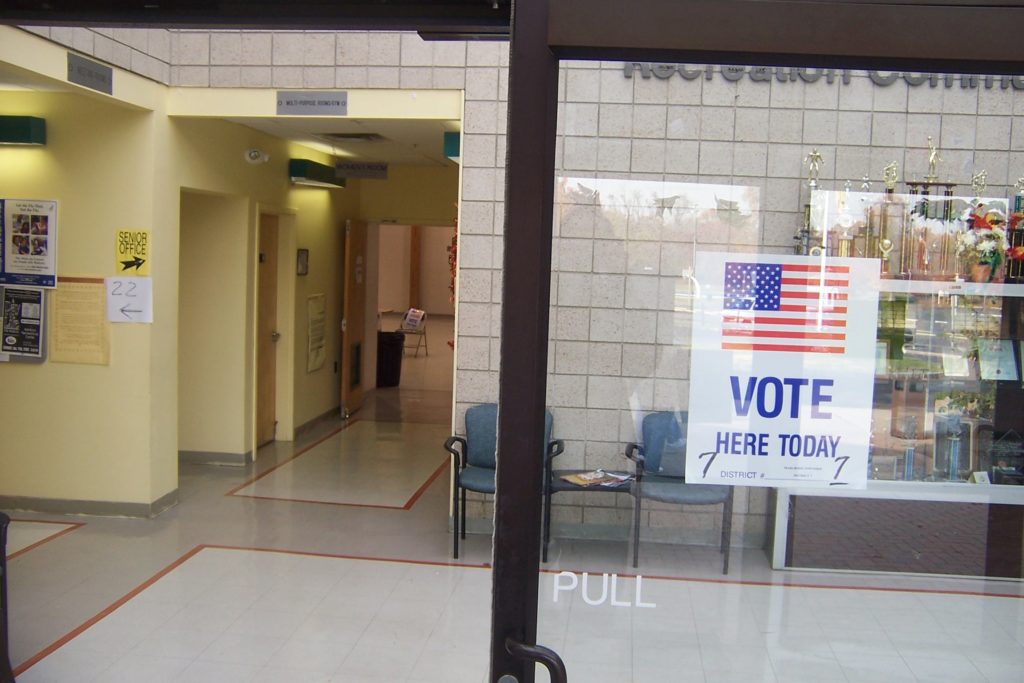On November 6, voters across the country rallied in anticipation of the returns on what had been a uniquely visible campaign season for midterm elections. Yet many Americans, consumed by hopes for or fears of a “blue wave,” may have missed another wave rising in its wake: a nation-wide surge of progressive ballot proposals. Massachusetts became the first state to pass an initiative affirming the prohibition of gender identity-based discrimination, Oregon voters upheld the state’s sanctuary state law, and voters across three traditionally conservative states supported expanding Medicaid. Many successful initiatives seemed to rebuke the polarizing and prejudicial rhetoric coming from the White House. With voters across the political spectrum disillusioned by party leadership and the prevalence of special interests politics, the initiatives seemed to reassert the power of the people, testifying to the impact of bottom-up democracy.
Expanding Civil & Voting Rights
With dog-whistle politics and concerns of minority voter suppression dominating Congressional and gubernatorial races, racism seemed to play a palpable role in the 2018 midterms. This may not have surprised voters given the racially-charged rhetoric of the current presidential administration and the growing influence of far-right movements in mainstream politics. Recent ballot initiatives, however, furthered landmark civil rights measures in some of the states most plagued by the nation’s legacy of discrimination.
Today, Florida has one of the highest incarceration rates in the country. Currently, 10 percent of the state’s adult population and 20 percent of its African-American population is currently unable to vote. On Election Day, the state voted to restore voting rights to former felons upon completion of their prison sentences. Pacific Standard reported that the move stands to re-enfranchise about 1.4 million former felons: equal to more than 6 percent of state residents, this is “the largest group of people [to be re-enfranchised] at one time since the 19th Amendment gave women the vote in 1920.” An anticipated surge in the voting population may dramatically change the state’s electoral landscape, shaping the role this swing state plays in the 2020 presidential election.
In Louisiana, another former Confederate state, voters repealed a Jim Crow-era law allowing non-unanimous juries in felony trials. Meant to diminish black jurors’ influence, the law’s superficial race-neutrality, along with claims that it bolstered court efficiency, has enabled its survival despite its racial origins and implications. A study found the law to disproportionately impact African American felons, with 10 percent more of verdicts reached over the disagreement of one or two jurors in the relevant time period involving black defendants. Colorado voters, meanwhile, amended their constitution to prohibit the use of slavery and involuntary servitude as punishment for a crime. This long-standing exception to slavery’s prohibition, still intact in the 13th Amendment, has fueled national debates on mass incarceration and the prison industry.
Pushing for Electoral Reform
Although studies show that an overwhelming majority of Americans support campaign finance reform, representatives are often hesitant to take money out of politics so long as they can benefit from the status quo. This month, voters took the matter into their own hands — or rather, ballots!
New Yorkers voted to expand the city’s public matching funds program. Hoping to enable grassroots candidates to enter competitive races, city government matches small-dollar campaign donations made to eligible political candidates. The recent amendment to the city charter lowers the individual contribution limit for candidates and increases the matching-funds ratio to $8 for every $1 raised, as well as eases eligibility requirements for candidates in major citywide races. Massachusetts voters took a different approach to campaign finance reform. The passage of Question 2 will establish a citizens’ commission to examine the potential for repealing the infamous Citizens United decision, notorious for enabling the rise of “dark money” in campaign politics.
Focusing on another aspect of electoral reform, Colorado voters waged war on partisan gerrymandering by passing Amendments Y and Z to establish independent redistricting commissions on both congressional and state legislative level. The commission, composed of equal numbers of Democrats, Republicans, and non-party-affiliated voters, will review districts drawn by independent legislative staff.
The Battles Ongoing
Despite broad trends of progressive policy reform, this November’s slew of ballot initiatives also revealed wide disparities in different states’ views on hot-button political issues. Climate initiatives, in particular, met fierce opposition. Many environmental initiatives, including proposals for carbon taxes in Washington and Colorado, were crushed by massive resistance campaigns funded by the fossil fuel industry. There were, however, a few successes: a Nevada initiative imposed a 50 percent renewable energy mandate on state utilities for 2030 and a Florida initiative supported writing a ban on offshore drilling into the state’s constitution. The fate of abortion laws was similarly contested. While Oregon voters rejected eliminating abortion coverage for female Medicaid patients and public employees, Alabama and West Virginia residents voted to criminalize abortion, anticipating the overturning of Roe v. Wade being by a now majority-conservative Supreme Court in the wake of Justice Kavanaugh’s confirmation.
While spanning the ideological spectrum, the widespread success of ballot initiatives implementing major policy reforms showed the immense power of such initiatives to realize average citizens’ political agenda, regardless of its alignment with that of their elected officials. With many already anticipating the 2020 presidential election, the true impact of this surge in citizens’ activation around regaining control over the democratic process remains to be seen.
Image Source: Wikimedia Commons / Wasted Time R
